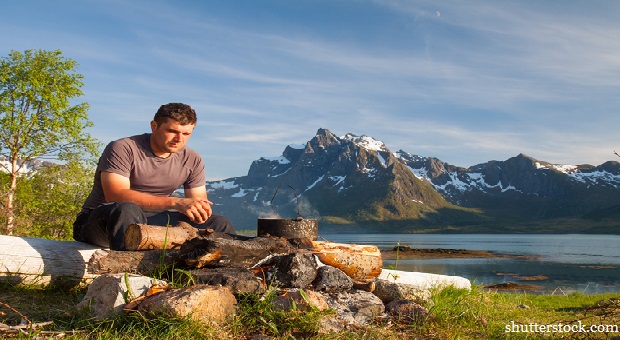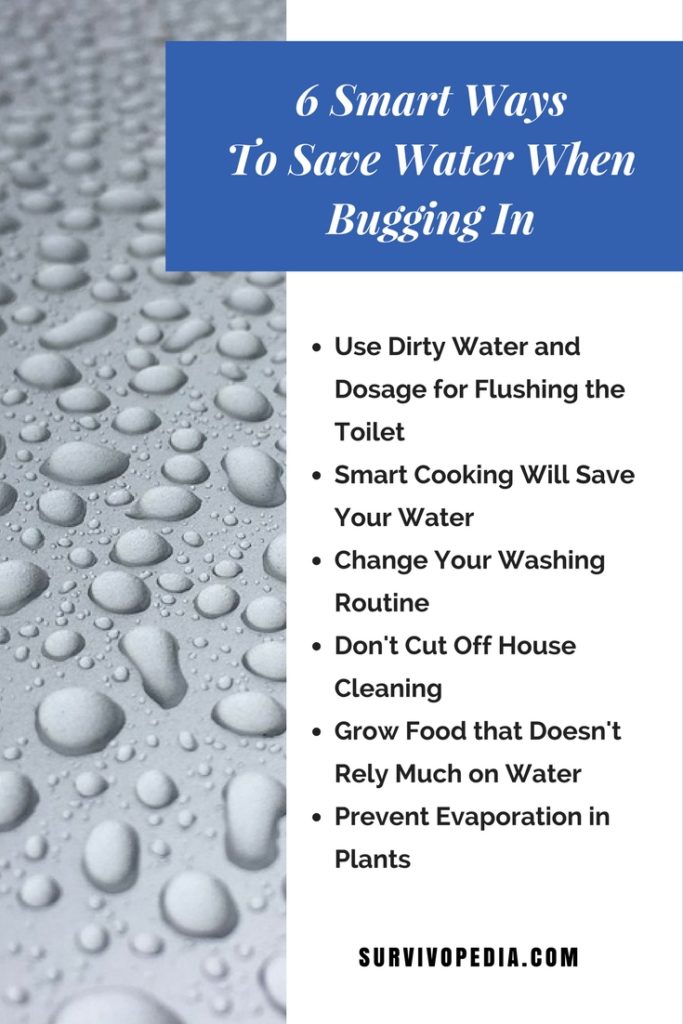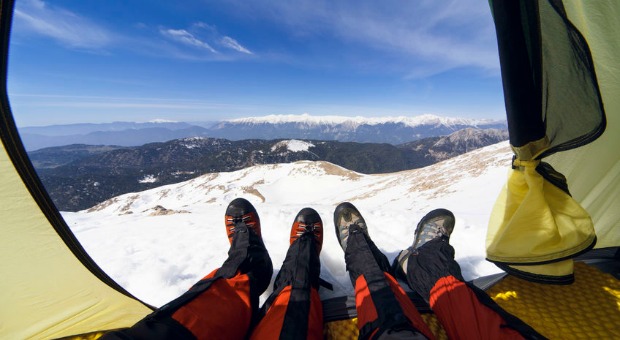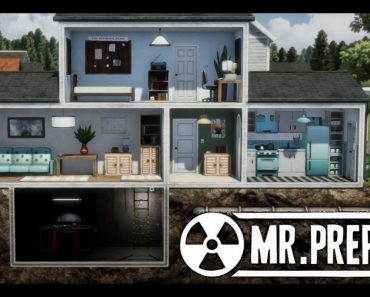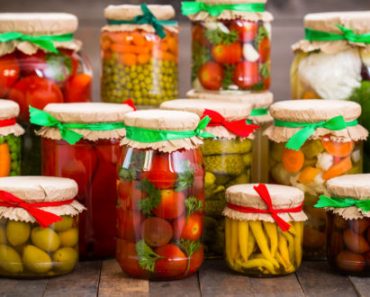An abundance of survival TV shows has kept us entertained in the last decade or so, and it seems that the public demands more and more such entertainment.
To some, living in the wilderness as seen on TV seems nothing more than a fun adventure. In my opinion, this is one of the drawbacks such TV shows bring. They provide a false sense of security to many.
Life in the wilderness is different than what you see on TV. There’s no one to edit and pick the best bits that provide that captivating venture and entertainment in a real survival scenario. Becoming self-sufficient in the wilderness is a task that takes years to accomplish, and it’s a hardship that requires time adjusting to.
There are certain types of skills that you need to master to survive in the backwoods. I spend a lot of time in nature since I’m a hunter and a fisherman, and I go camping or hiking every time I get a chance. Even so, I’m far from having that level of self-sufficiency that would make living in the backwoods an ideal scenario.
I’ve met people that live in the rugged outdoors, and I’ve made a list of skills you need to learn to survive the great outdoors based on their experience.
Learn to hunt
Hundreds, if not thousands, of books have been written on hunting, and you could read most of them without even scratching the surface of what hunting means when you find yourself in the field.
Hunting becomes a mandatory skill if you plan to live in the backwoods, and one of the things you need to master is how to shoot a gun or bow skillfully. Regardless of your weapon of choice, you can’t afford to go into the wilderness without being proficient with it.
Chances of getting game will be rare, and most time, you will make mistakes that give away your position and scare prey away. You will have to learn how to scout for game and locate various animals by tracking their feeding, watering, and bedding habits.
Once you manage to bring down your game, the gutting, skinning, and processing phases become mandatory. It would help if you learned how to field dress an animal since you probably won’t get any help out there. There’s no one to give you a helping hand, and you must acknowledge that processing game takes a lot of knowledge and experience, but most importantly, it takes time.
Since most people lack hunting skills, their best course of action would be to seek the company of an experienced hunter. Find one and ask him to mentor you if you want to become a hunter.
Learn to fish
My grandpa used to say that learning to fish is a gift that keeps on giving, and he was the one that taught me how to fish. If you lack the abilities to hunt, fishing may come to your aid, and it will help you obtain that needed survival protein.
The problem with fishing is that even if you fish the same species repeatedly, you must adapt your fishing tactics throughout the year. You can’t call yourself an experienced fisherman until you’ve angled a particular species of fish for each month of the year. After doing so, you will learn the challenges the changing season brings, and you will learn how to catch dinner no matter the weather.
Once you master catching a single kind of fish, you need to branch out and try to bag other varieties as well. You will learn to experiment with various baits, and you will diversify your skills without even realizing it.
Now there’s always the option to learn how to set fish traps, and such technique does work, but in my opinion, you should never rely on a single skill to bring home dinner. Combine your skills for maximum gain, and you will never go hungry.
Preserve meat
If you manage to hunt or fish successfully, you will have to learn how to preserve meat since you can’t eat everything in one sitting. Dehydrating meat is one of the skills that will help you preserve meat in the wilderness, and jerky has long been the food of choice for many backwoods inhabitants.
Mountain men used to make jerky over an open fire without problems, and they would use a fire pit on which they would set sweet gum saplings as a grill. They would cut the meat into thin strips and let it sit over the fire for at least 4 hours until the meat dried out.
Smoking meat is also another skill you could use to preserve the meat you procure, but for this to work, you will need to improvise a smoking chamber over your fire using your tarp. I can tell you from personal experience that you need to pay attention when doing so since you may end up damaging your fire. Lesson learned on my side, and now I use an emergency blanket whenever I make wilderness jerky.
Learn to clean your water
In a wilderness survival scenario, clean drinking water becomes a critical resource since you won’t have access to tap water. Learning how to purify water comes in various ways, and the most popular is to collect water and boil it using your campfire.
Note: Keep in mind that the CDC recommends boiling water for at least one minute to kill all bacteria. The situation changes when you are at an altitude exceeding 6,000 feet, case in which you need to boil the water for at least 3 minutes to make sure it is potable.
Purifying water can be done in various ways, and those living in the rugged outdoor will tell you that having a water filter is worth its weight in gold. Some have portable water filters that can fit in their pockets, while others have a Berkey water filter set in place that can purify water for extended periods.
Take advantage of natural resources
There are all sorts of natural resources around you that can serve one or more purposes. Learning how to identify such resources will help you build a shelter and turn it into a temporary home. Natural stone formations can be used to build a sturdy shelter, while a nearby water stream can be used both as a source of water and a food procuring source.
It takes a specific mindset to look at things around you and turn them into stuff needed to survive. You can’t just throw the average person in the middle of the woods and expect them to survive without panicking and losing their minds.
Your brain can be your greatest ally, but it can also turn into your worst enemy. It may tell you to go ahead and try those plump vividly-colored berries to appease your hunger because it doesn’t know any better. On the other hand, it may tell you to restrain yourself and do a taste test when foraging wild edibles. Experience and knowledge will help you identify and use natural resources to their full extent, and they will also help you keep a clear head in the face of adversity.
Learn wilderness first-aid
Wilderness first-aid is quite different than your basic first-aid training, even if some of the principles remain the same. While CPR is a skill you need to learn and learning how to self-administer the Heimlich maneuver becomes mandatory to anyone venturing into the wilderness, things can get more complex.
You always have to keep in mind that you will be alone most of the time, or chances are you will get separated from your group if you are part of one. It becomes mandatory to know how to stop blood loss and sew up laceration using just a thread and needle in such scenarios.
A sprained ankle or a fracture can spell disaster out in the wilderness, and you need to learn how to improvise a splint and how to immobilize the affected limb to get back to camp or seek medical aid.
The golden rule of wilderness first aid is to learn how to make do with what is available without causing further injury and putting yourself at risk.
Learn to be seasonal
Living in the wilderness requires you to think seasonally and plan your daily activities based on the available resources and supplies. As food sources change with the season, you will have to adapt to new ways of obtaining food. For example, you can forage during the spring and summer months without issues, but when winter comes, you will have to concentrate all your efforts on digging up edible roots since flowers and fruits will be nowhere in sight.
Each activity requires a different approach when the season changes, and fishing during the winter months is much more complex than the year’s warmer months.
Since you will have to deal with changing weather and battling the cold will become a constant problem, you have to plan your activities to be as fruitful as possible. The number of calories you spend doing chores should be less or equal to the returned energy those tasks provide. Don’t spend more calories than you can gain since your body will suffer, and it won’t be able to sustain vital functions.
Plan for the upcoming months by mapping out all the food sources you have and the resources you’ll obtain when you spend time in the woods.
Never waste resource and use everything
Living in the wilderness will teach you that everything must be used and repurposed, and there’s no room for unnecessary waste as it happens back in the city. Sometimes the immediate use for an item will not be evident at first, so your best bet would be to store that item and use it later you’re your survival inspiration kicks in. A tin can be nothing more than rubbish in the eyes of many, but it can be turned into a camp stove by the keen survivalist, or it can be used to gather berries and other juicy edibles.
A time will come when you will find uses for everything that you procure from the wilderness. Even saving the bones and hides for animals is mandatory since you can use such items in many ways. Becoming self-sufficient in the wilderness means using everything you manage to acquire without having to bend backward.
Learn to train your brain and figure out ways to repurpose everything around you. You can start doing so in the comfort of your own home and before you throw anything out, make an effort to think about how that item could be given a new life.
Concluding
While there are certain obvious things one needs to carry into the wilderness to subsist with what Mother Nature offers, knowledge still remains your primary tool. It will help you not only to survive but thrive in an environment many consider unhospitable.
Even so, knowledge is nothing without experience and field testing, so just reading about how to survive in the wilderness is just the start. Get out there and give yourself the luxury to get lost in nature and learn how to get by just like your ancestors did. Always keep in mind that Mother Nature doesn’t play fair, and you are just a guest that needs to learn how to get along with their host. Be prepared to fight and overcome the unexpected!


